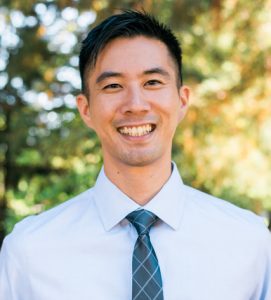
Speaker:
Joseph Cheng, PhD
Seminar Title: (Re)learning MRI Reconstruction
Date: May 24
Time: 4 – 5 pm
Location: 1325 Health Sciences Learning Center
Abstract:
Magnetic Resonance Imaging (MRI) is a powerful and flexible tool that provides a rich source of diagnostic information. Due to the physics of this imaging modality, a trade-off between resolution and scan time must be made. This limitation has hindered its use for dynamic imaging, pediatric imaging, and many other clinical applications where high-quality fast imaging is critical. We have previously made significant strides with the imaging technology through recent developments in the area of compressed sensing and model-based reconstruction. These advanced algorithms have enabled the ability to obtain high-quality imaging in a rapid fashion. With the emergence of deep learning as a practical tool, we are revisiting MR imaging and questioning the previously considered limitations. In this talk, I will explore the use of deep learning to (re)learn what MRI reconstruction can do. Specifically, I will present our findings in the areas of multi-channel reconstruction, compressed sensing, and image-artifact correction. Our work builds upon an understanding of the MR imaging physics to develop powerful deep-learning-based solutions that can be practically applied to enable enhanced healthcare.
Speaker Bio:
Dr. Joseph Cheng is currently an Instructor in the Department of Radiology at Stanford University. He received both his B.S. and M.Eng. in Electrical Engineering & Computer Science from Massachusetts Institute of Technology (MIT). Afterwards, he moved to Stanford University to obtain his Ph.D. in the Department of Electrical Engineering and to complete his postdoctoral training in the Department of Radiology. He is interested in the field of systems and signal processing – more specifically, applications and theory of this field for the area of medical imaging. Some MRI applications he has worked on include real-time cardiac imaging and pediatric imaging. Specifically, he has studied topics such as image-artifact reduction, motion characterization and correction, compressed sensing, and deep learning.
Recorded Lectures (Radiology Intranet): Mp4 Lecture